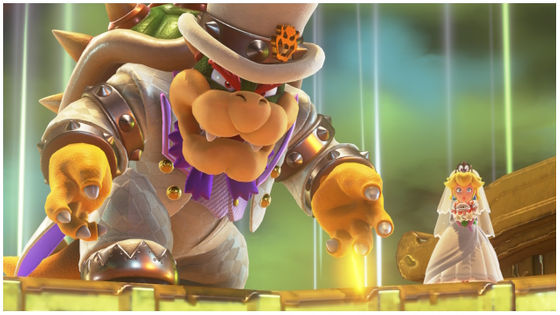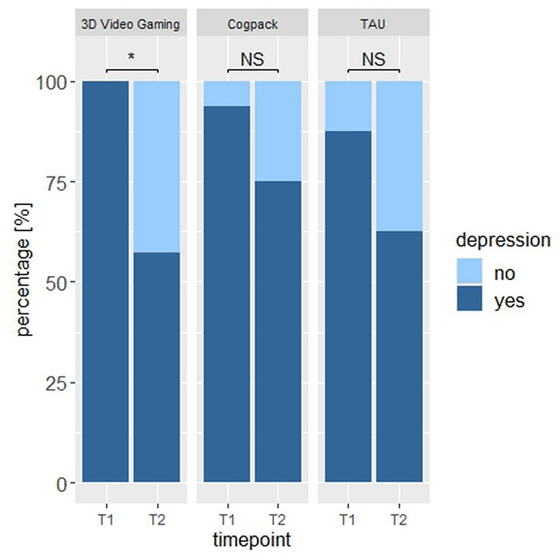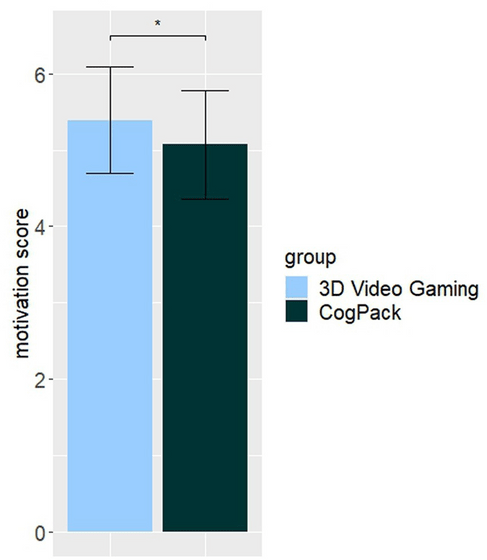German research reveals that playing ``Super Mario Odyssey'' reduces severe depression by half, more effective than dedicated programs or standard treatments

by
A research team at Germany's Bonn University Hospital found that almost half of the depressed patients who played the Nintendo Switch action game ' Super Mario Odyssey ' three times a week for six weeks had a dramatic improvement in their symptoms, making it a study for people with mental disorders. It was announced that it was more effective than the rehabilitation software that had been developed.
Frontiers | Effects of a video game intervention on symptoms, training motivation, and visuo-spatial memory in depression
https://www.frontiersin.org/articles/10.3389/fpsyt.2023.1173652/full
Cognitive trainings using video games might increase subjective well-being of individuals with depression
https://www.psypost.org/2023/12/cognitive-trainings-using-video-games-might-increase-subjective-well-being-of-individuals-with-depression-215084
Super Mario Odyssey reduces symptoms of depression by almost 50%, concludes a German study - Ruetir
https://www.ruetir.com/2023/12/super-mario-odyssey-reduces-symptoms-of-depression-by-almost-50-concludes-a-german-study/
Research on the human mind can be broadly divided into two parts: the emotional aspect of ``how we feel about the world'' and the cognitive aspect of ``how we know about the world.'' Much of the traditional research on depression focused on the emotional aspects of patients, but in recent years it has become known that depression also has a significant impact on cognitive function.
A new approach to research on cognitive function that is attracting increasing attention is the positive aspects that video games have on the human brain. Numerous studies conducted since games became popular have shown that playing games improves the cognitive ability of the brain , and that children who play games for a long time have higher intelligence . It has been found that it has various effects.
A team led by Moritz Bergmann from the Department of Psychiatry and Psychotherapy at the University of Bonn conducted a game on 46 inpatients or day care patients between the ages of 18 and 65 who had been diagnosed with major depressive disorder (MDD). conducted a study comparing the outcomes of depression therapy, cognitive training, and conventional depression treatment.

by
The research team first divided the patients into three groups and asked the 14 depressed patients assigned to the first group to play ``Super Mario Odyssey.'' ``Super Mario Odyssey'' was selected because the content of this game, which uses the brain's hippocampus to move through a 3D environment, improves memory ability through the hippocampus, especially the performance of visual and spatial learning. This is because it can be expected to have an impact. Please note that people who had played ``Super Mario Odyssey'' before the experiment were excluded from this study.
The 16 people assigned to the second group received training using the cognitive training program CogPack, and the remaining 16 people assigned to the third group received standard treatment. We observed the progress of these three groups. For both groups, training sessions were conducted three times per week for a total of 18 sessions over 6 weeks, with each session lasting 45 minutes.
When the symptoms of depression patients at the beginning and end of the study were evaluated and compared using the Beck Depression Inventory (BDI-II) , almost half of the patients with depression who played Super Mario Odyssey showed symptoms. was found to have improved significantly.
Below is a diagram comparing the percentage of patients whose BDI-II score was 13 points or more, which is 'mild', in 'Game (left)', 'CogPack (center)', and 'Standard treatment (right)'. The group that played 'Super Mario Odyssey' decreased from 100% before the experiment to 57%, and was the only group among the three with a statistically significant difference.

In addition, the group that played the game had higher subjective motivation, or motivation, than the group that played the training software.

On the other hand, as a result of conducting the ``Brief Visuospatial Memory Test Revised Version (BVMT-R)'' and ``Wechsler Memory Scale Block Tapping Test (WMS-block tapping),'' which test visuospatial memory, training with ``CogPack'' The group that played Super Mario Odyssey showed improved scores on both tests, while the group that played Super Mario Odyssey showed a significant effect only on the BVMT-R. has risen.

Based on these results, the research team concluded, ``Cognitive training using video games increases subjective well-being, indicates a higher level of training motivation, and may lead to improved visuospatial memory abilities in patients with depression.'' It is suggested that this is the case.''
Related Posts:







